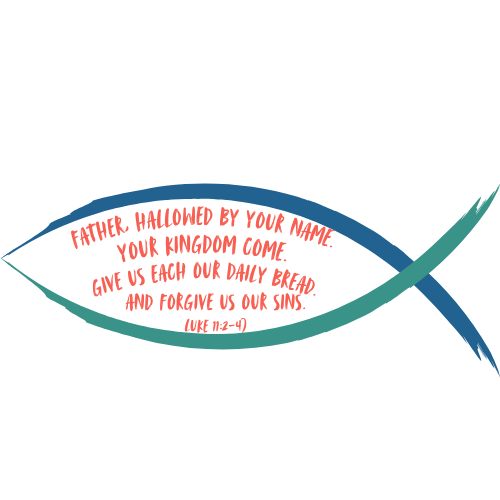Teach us how to pray
Jesus gave us the formula...
Form and formula for prayer
I’m pretty sure we all know the Lord’s Prayer.
But how often do we consider that Jesus didn’t just teach us the words - he didn’t just tell us what to ask for - He taught us HOW to pray. The form and formula.
His disciples ask him: ‘Lord, teach us how to pray.’
And Jesus responds by giving us the basics:
Address: ‘Holy Father’ (‘Father in heaven’)
Petition: ‘Give us our daily bread’, ‘forgive us our sins’
Purpose: So we can ’forgive those who sin against us.’
Doxology: ‘The kingdom, and the power, and the glory are yours’ (Jesus didn’t say that part, but the early church - as early as the 100’s AD - started adding it).
From the beginning of our time with Jesus, we’ve been looking for direction and guidance on how to follow him.
From the beginning of the church, we’ve been asking how to pray.
I just want to learn how to pray. I just want to know the Bible.’
‘I am aching to practice my faith within a community.’
We were sitting outside, having coffee. Talking about church - its troubles, its stresses. She is a faithful churchgoer - a congregational leader. She knows more about how the church functions - and doesn’t - than most people ever will. She is smart, savvy, and kind.
And as we talked more, I understood that she is also lost and bewildered.
She is searching for something - deeper relationship with God, deeper connection in community. She is looking for it in the obvious place - church.
And she is not finding it.
It was that word - aching - that touched my own soul. And caused me a small bit of shame and embarrassment.
Because even though she is not a member of my own church community, I feel like we’re all in this together. We’re all part of the body of Christ. And I am ordained to carry its practices and traditions to others.
Isn’t this my job, as a minister? To guide others into deeper relationship with God - and with the Christian faith? To help them ease the ache in their own souls?
Where am I failing? Where am I not connecting? What am I missing?
It feels to me like the ‘stuff’ of church gets in the way.
‘Church life’ can feel more like a series of meetings and commitments.
And sometimes tensions - punctuated by Sunday worship.Worship itself can feel like a mystery we don’t quite get.
Even though we share it with others, do we fully understand and embody the rites we are participating in? Do we know how we are participating in the whole body of Christians, and how we are supporting our own faith life - and those of others?When we leave worship, and it can feel like we never really connected with others, or with God.
Increasingly, we don’t even bother with worship.
We don’t even belong to a church. We’ve left, or we’ve never started going. Or the pain of being part of something that feels like almost what we need is just too much.And even when we’re still there at church, it can be … lacking.
Is it really a place where we’re learning and sharing about the Christian faith? Do we feel comfortable talking with others about our beliefs, or growing in our walk with Jesus?
This is not to blame anyone - even myself. I’ve spent ten years trying to sort out the administrative and organizational collapse that is happening to the institutional church, and find ways to soften the blow.
Then I started thinking about how to start from the inside:
Where do we find guidance for just figuring out how to be a Christian?
How to follow Jesus.
How to ease this ache - this longing - in our souls.
The answer came quickly:
we go back to where it started.
The first disciples. The early church. The first few hundred years after Jesus was with his followers in person. What did they do? How did they order their lives? How did they practice the faith?
How did they pray?
They used this form - address, petition, purpose, doxology - mostly learned from Jesus.
We can use it, too.





